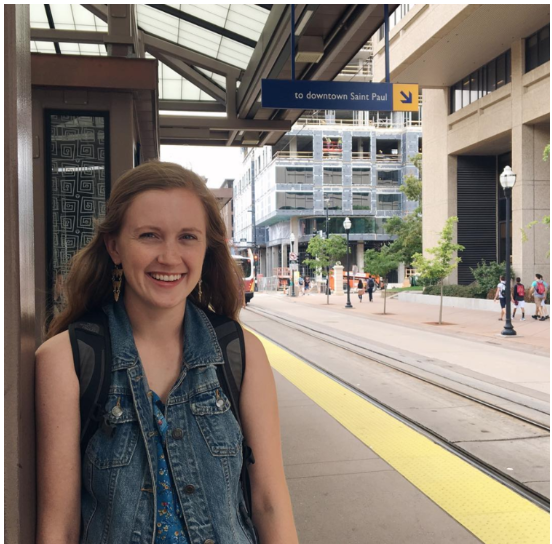A blog post written by Maddie Johnson, 2018-2020 Fellow
Near the end of my graduate education, I knew I wasn’t ready for it to be over. Two years seemed gone in an instant and though I felt like public health was the right field for me, I wasn’t prepared to focus on a specific career path. I still wanted space to learn and grow while also working towards positive change in the community I lived in. This sentiment is what drew me to the Wisconsin Population Health Service Fellowship. Working a full-time job while also creating time to learn and reflect seemed countercultural in a society that emphasizes constant doing rather than being. When I found out I was offered a position in Milwaukee working as a population health fellow, I was conflicted because many of my peers were moving straight into the working world. I had never even visited the city of Milwaukee – was I ready for such a move?
At the time of the fellowship offer, I was living in Minneapolis, Minnesota and finishing my last semester at the University of Minnesota in their master’s in public health program with a focus in public health administration and policy. The morning after I was accepted into the fellowship, I trudged along University Avenue to my graduate research assistantship at the UMN Rural Health Research Center. After arriving, I relayed the news to my supervisor, Dr. Carrie Henning-Smith, conveying my feelings of excitement but also reservation. To my surprise, my supervisor informed me she completed the same fellowship ten years ago with site placements in Milwaukee.
Now that I am entering month 11 of my two-year fellowship, I look back on this coincidence, reflecting on my experience at the University of Minnesota and how my education led me to this program. I revisited my connection with Dr. Henning-Smith recently and asked her about her fellowship experience and career since then. During her fellowship, Dr. Henning-Smith was placed at the Milwaukee County Department on Aging where she worked on various projects including developing a county-wide wellness council. She was able to have a secondary placement at a small nonprofit, which worked on social services and wellness programming for older adults living in public housing. One of her favorite parts of the fellowship was having the freedom to explore different opportunities and areas in public health while also affirming her interests.
After completing the fellowship, Dr. Henning-Smith went to the University of Minnesota to complete her PhD with the goal of conducting research to address systemic problems. She states that the fellowship helped her work on her skills in listening and community engagement in a meaningful way. I find a lot of parallels when looking at Dr. Henning-Smith’s journey and my own journey. I currently have duel site placements at the City of Milwaukee Health Department in the Office of Policy, Strategy and Analysis as well as the Center for Urban Population Health. I am finding that success in the real world looks different from my academic studies, especially when incorporating the philosophy that change starts with the community.
While working at the UMN Rural Health Research Center with Dr. Henning-Smith, we created the Mental Health in Rural Communities toolkit (funded by the Health Resources and Services Administration (HRSA) through the U.S. Department of Health and Human Services (HHS)), which refined my interests in mental health and in stakeholder engagement, both interests I have been able to explore throughout my fellowship. I connected with Dr. Henning-Smith recently to see what she wanted to highlight from this toolkit. I hope that this blog post can serve as a reflection of both of our fellowship experiences, but also shed light on a wonderful resource which will be helpful to rural communities across the country. Dr. Henning-Smith states that there is an urgent need to think about addressing mental health in rural communities. This toolkit provides a means to do so as we interviewed mental health programs across states to gather information on promising practices in the field.
When I talk to most people about how they came to work in public health, I find that our journeys may differ drastically, but we have one commonality: the path was indirect and at times far from obvious. Another commonality I have found is that public health folks have an innate desire to seek truth, justice, and a better society. I have met these individuals both in my time at the University of Minnesota and throughout my fellowship program. The fellowship has given me and others before me the opportunity to reflect, learn, and explore with the overarching goal of providing community service and creating positive system change. For these opportunities and future opportunities, I am grateful to my university professors, mentors, and fellowship staff. My path feels less uncertain and I know year two of the fellowship will provide me with more clarity, inspiration, and guidance.



